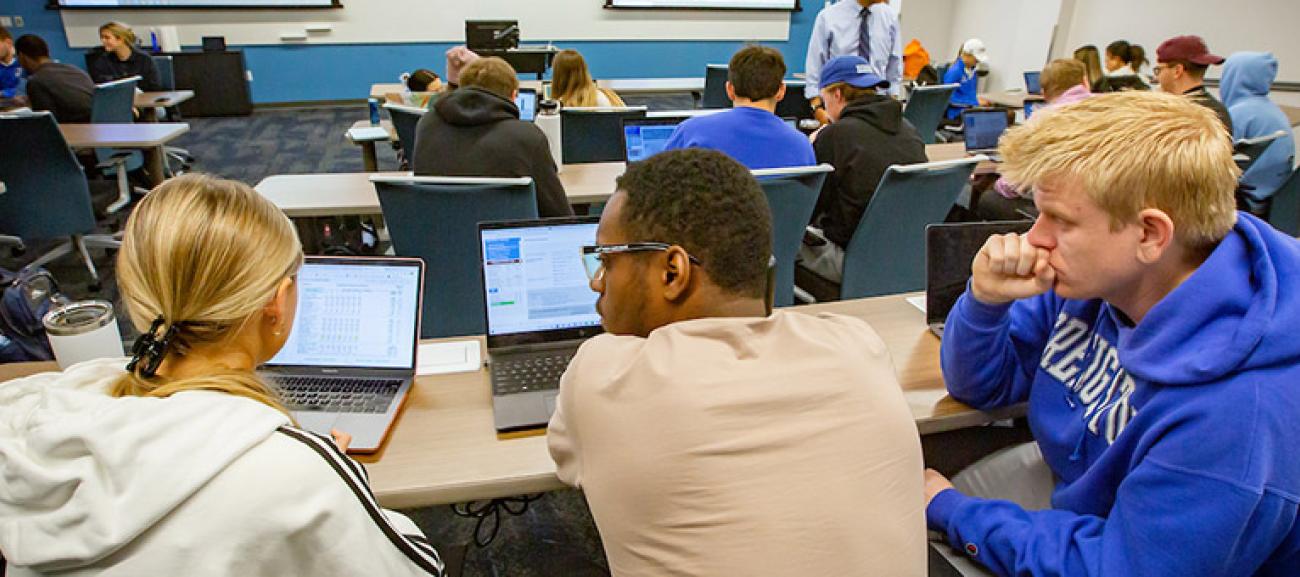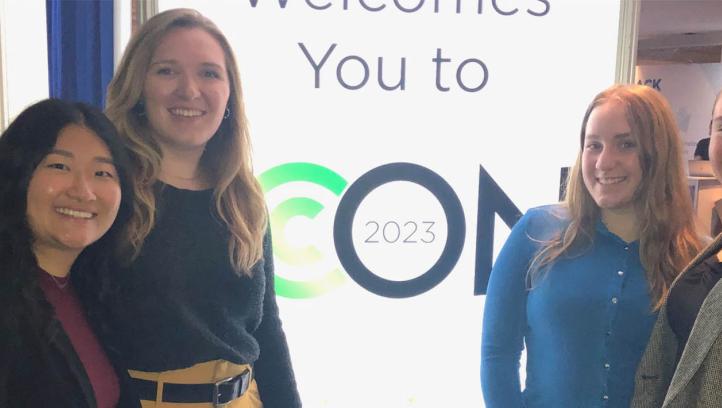
Students tackle big questions of online privacy rights

The turmoil occurring at the intersection of digital ethics and constitutional law took a team of Creighton students deep into what a law professor terms “the wild west” of data collection and the rights of an individual.
The investigation resulted in a paper published in the February 2023 edition of TechREG Chronicle, a publication of Competition Policy International.
Titled, “Principles of Digital Law and Ethics,” the paper tackles how data is collected about individuals and how that is used, including how people are often punished for youthful infractions.
Students William Harper and Kylie Karsky were among the dozen or so students from the School of Law, the College of Arts and Sciences and the Heider College of Business who came together on the project. Each says they gained much from the research project.
“As the world rapidly changes due to artificial intelligence it is important to ensure that this technology works for people, not the other way around,” Harper says. “Being able to contribute to the emerging field of digital ethics has been incredibly rewarding.”
For Karsky, the project brought home the importance of research.
“I learned about the importance of undergraduate research and of learning what the advancement of technology means for the legal profession,” she says. “AI technology is here to stay, and this is a relatively new field of law that has yet to be established.”
Other students involved were Joseph Masi, Michael Bartz, Madeleine Britto, C.J. Braccia, Emily Atamov, Ava Verzani and Clare Hart.
The paper warned that the massive collection of personal data and marshaling by automated programs poses a threat to individual rights, and that society, through its lawmakers, must establish rules about what information can be gathered and how that data may be used to judge individuals.
Last year, the students began meeting weekly to discuss digital ethics. A series of publications in various journals resulted, the latest of which is “Principles of Digital Law and Ethics.”
“I think the students learned a lot about the law and about ethics,” says Thomas Freeman, JD, MS, MBA, who led the student group. “There has to be some kind of statute of limitations on being an idiot online.”
“You have for example the 14-year-old cheerleader who quotes rap lyrics that use the N word, because she doesn't know any better. Now, that can't be the first thing that comes up anytime somebody Googles her name for the rest of her life. That is just not fair.
“Partially, we do this because it's the right thing to do, and partially because we have self-interest. At some point, all of us are going to say something stupid. We all have an interest in building grace into systems... I was very concerned that it was the wild west. You have all this data flowing out there, and people are turning it into revenue streams with no real regulation.”
The paper was written in partnership with Aaron McKain, PhD, MSL, executive director for the Institute for Digital Humanity. McKain investigated concepts of digital law and ethics, the right to privacy, and reforming algorithmic decision making.












